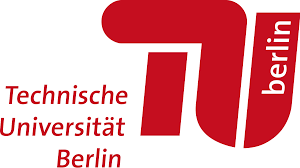Study at TU Berlin in English - Programs, Admission & Fees (2025 Guide)

Contents
TU Berlin, short for the Technical University of Berlin, is one of Germany’s top tech hubs, bringing together students from all over the world. Located in the electric city of Berlin, TU Berlin is the perfect spot for international students ready to shape their future and make big things happen!
If you're considering studying at TU Berlin in English, this guide has you covered! From available programs and admission requirements to tuition fees, student life, and scholarships, we’ll walk you through everything you need to know.
TU Berlin at a Glance
- Abbreviation: TU-Berlin
- Year of foundation: 1879
- Type: University
- Institution Type: Public
- THE (Times Higher Education) ranking: 12
- Main Campus: Berlin
Can You Study at TU Berlin in English?
TU Berlin is one of Germany’s leading technical universities, known for its strong research programs and engineering excellence. For international students, TU Berlin offers a variety of English-taught programs at master’s levels, making it an attractive option for those who do not speak German.
Why Choose TU Berlin?
-
Ranked among the top universities in Europe for engineering and technology. TU Berlin's ranking is number 12th according to the Times Higher Education.
-
Strong industry connections with companies like Siemens, BMW, and Deutsche Bahn.
-
Affordable tuition with no tuition fees for most programs.
-
Diverse international student body with over 130 nationalities represented.
-
Located in Berlin, a vibrant and student-friendly city with a rich cultural scene.
English-Taught Programs at TU Berlin
Number of students
Number of international students
Share of female students
Share of international students
Doctorate possible
Avg. students per professor ratio
List of Master's Programs at TU Berlin in English for International Students
TU Berlin offers a wide range of master’s programs fully taught in English, including:
Admission Requirements for English-Taught Programs at TU Berlin
Application Deadlines
Summer Semester 2025:
- Master’s programs with restricted admission: Dec 1, 2024 – Jan 15, 2025
- Master’s programs with free admission: Dec 1, 2024 – Feb 28, 2025
Winter Semester 2025/2026:
-
Master’s programs with restricted admission (English-taught): April 1 – May 15, 2025
-
Master’s programs with free admission: June 1 – Aug 31, 2025
How to Apply to TU Berlin as an International Student?
-
Step 1: Research the program and check its specific requirements. If you are unsure of the course you want to study, use the StudyBuddy Program Database to look for study programs and find your dream course.
- Step 2: Gather and submit required documents, including academic transcripts, proof of language proficiency, motivation letter, and proof of relevant experience (if applicable).
-
Step 3: Once you have finalized your study program and gathered all the relevant documents, submit the application via uni-assist.
-
Step 4: Pay the uni-assist processing fee (€75 for the first application, €30 for each additional application).
-
Step 5: Track your application status and wait for admission results.
If you’re new to the German application system or want to understand better the full student journey—from admissions and health insurance to living costs and scholarships—visit our complete guide to studying in Germany.
Tuition Fees & Cost of Studying at TU Berlin
TU Berlin is a tuition-free university for most programs, meaning students only need to cover semester contributions and personal expenses. However, some specialized master's programs do have tuition fees. Understanding these costs is essential for planning your education and finances in Germany.
Tuition Fees for English Programs
-
Regular Programs: TU Berlin does not charge tuition fees for most bachelor's and master's programs. Instead, students must pay a semester contribution fee of approximately €300-400 per semester. This fee includes administrative costs and a public transportation ticket for Berlin.
-
Specialized Programs: Some international master’s programs, particularly those in business, technology, and management, may have tuition fees ranging from €5,000 €10,000 per semester. It is recommended that you check the official university website for program-specific tuition details.
-
Additional Academic Costs: Students may also need to budget for course materials, lab fees, and excursions, depending on their field of study.
Cost of Living in Berlin
Living in Berlin is relatively affordable compared to other major European cities, but costs can vary based on lifestyle and accommodation choices. Below is an estimated breakdown:
-
Accommodation: €350-800 per month (student dorms are more affordable, while private apartments can be expensive depending on location).
-
Food & Transport: €200-300 per month (the semester contribution fee includes a public transport pass, making commuting easier).
-
Health Insurance: €110 per month (mandatory for international students).
-
Total Estimated Monthly Cost: €900-1,300 per month.
For a more detailed breakdown of living expenses in Berlin and the best universities in Berlin, check out our dedicated guide on Best Universites in Berlin.
Student Life at TU Berlin
Studying at TU Berlin is not just about academics; the university offers a vibrant and enriching student experience. The diverse international student community makes it an exciting place to meet people from different cultures, collaborate on projects, and enjoy student life in one of Europe’s most dynamic cities.
Campus Facilities and Activities
-
TU Berlin has state-of-the-art research labs, modern lecture halls, and a well-equipped library for academic support.
-
The university hosts numerous student clubs and societies catering to various interests, including technology, entrepreneurship, sustainability, and cultural exchange.
-
Regular workshops, career fairs, and networking events help students connect with industry leaders and researchers.
Part-Time Job Opportunities
-
Students can find part-time jobs in Berlin’s thriving tech, finance, and hospitality sectors, with many positions available for English speakers.
-
The university’s career center and job portals help students find internships and job placements during their studies.
-
Under German student visa regulations, international students can work up to 120 full days or 240 half days per year.
Alternative Universities for TU Berlin
If you don’t secure admission to TU Berlin, several other strong universities in Germany offer similar programs in English. Depending on your field of study, you may consider:
-
RWTH Aachen University – A top choice for engineering and applied sciences, offering cutting-edge research opportunities.
-
Technical University of Munich (TUM) – Germany’s leading technical university with strong international collaborations.
-
University of Stuttgart – Renowned for mechanical and aerospace engineering.
-
Humboldt University of Berlin & Freie Universität Berlin – Both offer English-taught programs, particularly in humanities, social sciences, and business.
These universities provide excellent alternatives for students seeking a high-quality education in Germany with strong industry and research connections. To explore more top universities that welcome international students, check out our full list of German universities for international students.
FAQs
Is TU Berlin good for international students?
Yes! TU Berlin is one of the most international universities in Germany, with numerous English-taught programs and strong industry connections.
Which English-taught programs are available at TU Berlin?
TU Berlin offers several English-taught master’s programs in fields like engineering, data science, innovation management, and energy engineering.
How much does it cost to study at TU Berlin?
TU Berlin does not charge tuition fees, but students pay a semester contribution fee of around €300-400. The total cost of living in Berlin is €900-1,300 per month.
This might also be of interest to you

Summer Semester in Germany: Your Complete Guide for April 2026 Intake
Thinking about studying in Germany but missed the October deadline? The summer semester might be your perfect opportunity. While most international...

Why More Indian Students Are Choosing Germany Over the USA
In the last decade, Germany has become one of the fastest-growing study destinations for Indian students. While the USA once dominated the dreams of...

Top Courses for Indian Students in Germany vs USA (2025 Guide)
Studying abroad is a dream for many Indian students, but choosing the right country and course can be confusing. The United States and Germany are...

Germany vs USA: Work After Study Options for Indian Students (2025 Guide)
When you're choosing where to study abroad, it's not just about the university name or the country hype. For many Indian students, the big question...

5 Cheapest Countries to Study Abroad for Indian Students (2026 Guide)
Studying abroad doesn't have to drain ₹40-60 lakhs from your family's savings. Five countries offer world-class education for under ₹10 lakhs per...

Germany vs USA: Which Is Better for Indian Students in 2025?
Choosing where to study abroad is a big deal, especially for Indian students. You're not just picking a country; you're deciding to move far from...

Germany Welcomes Displaced Harvard Students: A New Academic Home
In a move that’s left thousands of students in shock, the U.S. government has revoked Harvard University’s certification to enroll international...






-1.png?width=1179&height=1764&name=image%20(6)-1.png)

